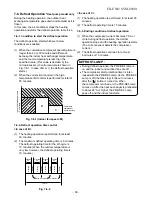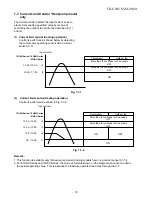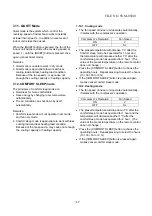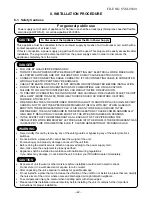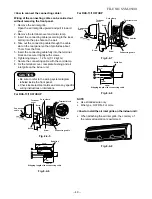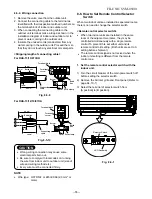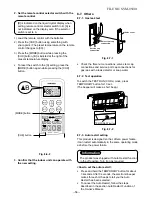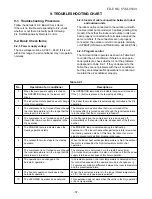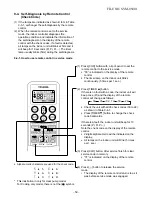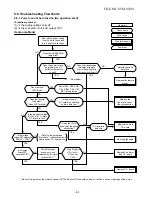
−
47
−
8-4. Indoor Unit
8-4-1. Installation place
•
A place which provides the spaces around the
indoor unit as shown in the above diagram.
•
A place where there is no obstacle near the air inlet
and outlet.
•
A place that allows easy installation of the piping to
the outdoor unit.
•
A place which allows the front panel to be opened.
CAUTION
•
Direct sunlight to the indoor unit’s wireless
receiver should be avoided.
•
The microprocessor in the indoor unit should not
be too close to RF noise sources.
(For details, see the owner’s manual.)
<Remote control>
•
A place where there are no obstacles such as a
curtain that may block the signal from the indoor
unit.
•
Do not install the remote control in a place exposed
to direct sunlight or close to a heating source, such
as a stove.
•
Keep the remote control at least 1 m apart from the
nearest TV set or stereo equipment. (This is
necessary to prevent image disturbances or noise
interference.)
•
The location of the remote control should be
determined as shown below.
Fig. 8-4-1
5 m
5 m
45
°
45
°
75
°
* 7 m
7 m
(Top view)
Indoor unit
* : Axial distance
Reception
range
Reception
range
Remote
control
I
ndoor unit
Remote control
(Side view)
8-4-2. Cutting a hole and mounting installation
plate
<Cutting a hole>
When installing the refrigerant pipes from the rear.
1.
After determining the pipe hole position on the
mounting plate (
A
), drill the pipe hole (
∅
65 mm) at
a slight downward slant to the outdoor side.
NOTE
•
When drilling a wall that contains a metal lath, wire
lath or metal plate, be sure to use a pipe hole brim
ring sold separately.
<Mounting the installation plate>
For installation of the indoor unit, use the paper pattern
on the back.
Fig. 8-4-3
∅
65 mm
100 mm
The center of the pipe
hole is above the arrow.
Pipe
hole
Fig. 8-4-2
62
85
82.5
170
7
Mounting screw
Pipe hole
Pipe hole
Indoor unit
Thread
Weight
Hook
Hook
1
Hook
Installation
plate
FILE NO. SVM-05001




